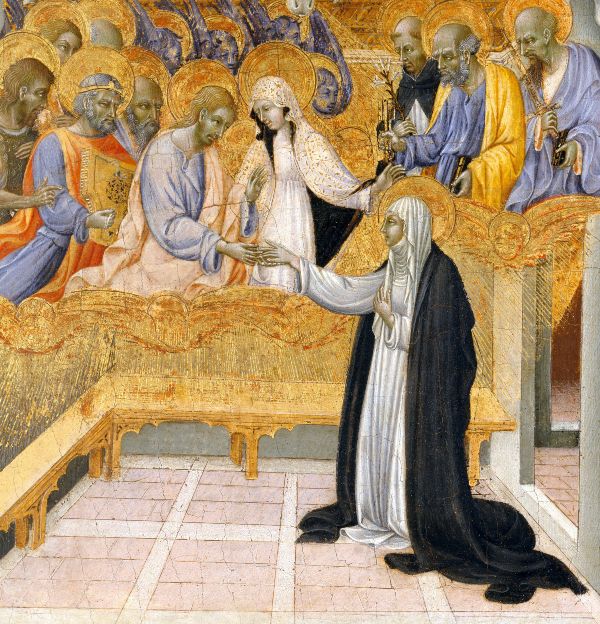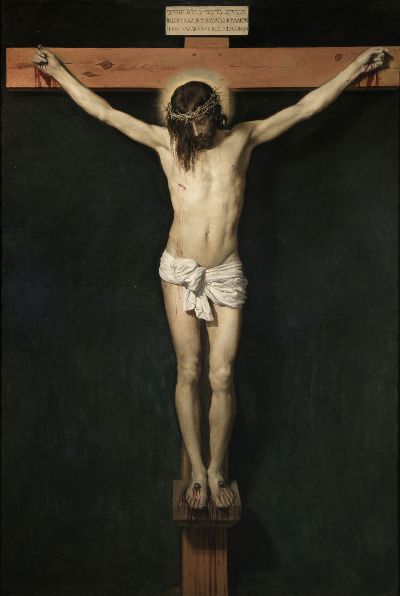What will your last words be?
Normally, undergrads don’t dwell much on the question. I haven’t much myself, to be honest, since I’m not that old…yet. But a person’s final words have the power to define them. Or better still, they summarize who they are and what they’re about.
Pope Benedict XVI’s final words moved me to tears. With his dying breath he murmured, “Lord, I love you.” Not everyone’s last words are so profound. Bing Crosby (who collapsed on a golf course) famously said, “That was a great game of golf, fellas. Let’s go have a Coca-Cola.” Lying in a cheap hotel in Paris and witty to the end, Oscar Wilde quipped, “My wallpaper and I are fighting a duel to the death. One or the other of us has to go.”
Some last words reveal insecurities and rivalries. President John Adams–bothered to the end by his longtime rival Thomas Jefferson–said, ironically, “Thomas Jefferson still survives.” Two-time Emmy winner Kirstie Alley claimed, “The only true thing is I got fat.” Long-time Beatle member George Harrison managed something more pious, saying, “Everything else can wait, but the search for God cannot wait, and love one another.”
Catherine’s Last Words
Taken out of context, Saint Catherine of Siena’s last words are extremely jarring. Fixing her eyes on a crucifix, she made the Sign of the Cross and cried, “The Blood! The blood!” Then echoing the words of her divine spouse she sighed, “Father, into Thy hands I commend my spirit.”

“The blood” sounds like a wild exclamation; an undomesticated interjection from a medieval Dominican mystic uninhibited by the niceties of modern piety. But it wasn’t a spontaneous clamor for Catherine. That’s why exploring her last words is an especially fruitful introduction to St. Catherine. After all, many things could be said about her: that she’s a patron saint of nurses since she cared for patients with plague, that she convinced the pope to move back to Rome thereby ending the Avignon papacy, or that she brokered treaties among warring families.
But for Catherine, who died April 29, 1380, the Precious Blood of Jesus was a favorite subject of meditation and a treasured spiritual theme. And for us, it’s still one worthy of exploring.
Written in Blood
Catherine’s letters (many have been preserved down to this day) typically open with a greeting like this: “I Catherine, servant and slave of the servants of Jesus Christ, write to you in His precious Blood…” Were the letters literally written in blood, like something out of a horror movie? Of course not. But for Catherine the blood of Christ was something to keep always at the front of our minds. So she doesn’t hesitate to call attention to his Precious Blood as she begins to write.
She explains in a letter, “Blessed Christ, my daughter, did not buy us with gold or silver or pearls or other precious stones; no, he bought us with his precious blood.” Such a great blessing cannot be forgotten, says Catherine, she must “hold it before one’s eyes, in holy and sweet gratitude.” In fact, she says that as the blood of the Passover lamb was put over the threshold in the Old Testament, “we must take the Blood of this Lamb and put it upon our forehead — that is, confess it to every rational being, and never deny it, for pain or for death.” For Catherine meditating on the blood wasn’t macabre or gruesome. On the contrary! The blood was evidence of love.
Plunged Into the Blood
Because the precious blood is first and foremost a demonstration of Christ’s love for us, Catherine longs to be plunged into it. She wanted to see that compassionate blood cover those who are dear to her. She tells her beloved confessor, Blessed Raymond of Capua, “[I] desire to see you inflamed and drowned in that his sweetest blood, which is blended with the fire of his most ardent charity.” Only by being covered in the precious blood will his soul attain humility, she advises.
There comes a point in the struggle of the spiritual life, where every soul has to relent. To just give in to Jesus, trusting that he’s going to do the work. That’s what Catherine means here. Only his grace is going to ultimately transform us, to wash us clean, to allow us to be free from even the most embarrassing and stubborn faults.
Catherine says that salvation is a door opened “with the keys of his precious blood.” Only Christ opens the door of love, which leads to the Father. In another place, Catherine counsels, “like a vase, fill yourself with the Blood of Christ crucified.” Full of the blood of Christ, there will not be room for the water of our desires.

The Blood of Truth
Catherine finds the truth in the blood. “We ought to fill our memory with this glorious Blood, which shows us so sweet a truth, that we may never be without the recollection of it.” What is that truth?
The truth is that God has become man. Jesus, the Son of God comes to us to fulfill his truth in us. Catherine says, “He has shown this to us verily by the blood of the loving Word, inasmuch that what we held by faith is proved to us with the price of that blood.” For Catherine, confusion, doubt, and sin vanish in the “hope of the blood.”
In one of the most captivating meditations in her famous “Dialogue,” Catherine describes Jesus as the bridge to heaven. In her description, the bridge of Christ has stone walls (so that travelers will be protected from rain) and those walls are made of the stones of virtue, secured with the mortar of Christ’s own blood. And at the foot of the bridge, is the hotel of the Church which serves weary travelers the bread of life and the blood. For Catherine, the blood protects and sustains us!
His blood clarifies the truth of who we are–sinners in need of salvation–and who he is–the divine physician who is more ready to forgive than we are to sin! For Catherine, the blood is the source of strength, enabling us to conquer any weakness in Christ. It is the sign of God’s compassion; his blood poured out in mercy for us on the cross.
Draw Near to Jesus
Catherine’s devotion to the precious blood is ultimately an expression of her desire to draw near to Jesus. To be awash in his precious blood is to be surrounded by him, to be enclosed by his love.
A special love for his blood means rejecting all the petty things of this world. His blood opens the things of heaven. It means committing ourselves to loving radically, all those who have also been washed in his blood at baptism. It means not relying on our own strength to grow in holiness, but counting on his blood to nourish and sustain us. It means allowing the emptiness of our own unworthiness to be filled with his blood.
Catherine’s last words are words to live by. Words that should shape the hearts and lives of every disciple. Let us make them our own, praying, “The blood! The blood! Father, into your hands I commend my spirit.”
